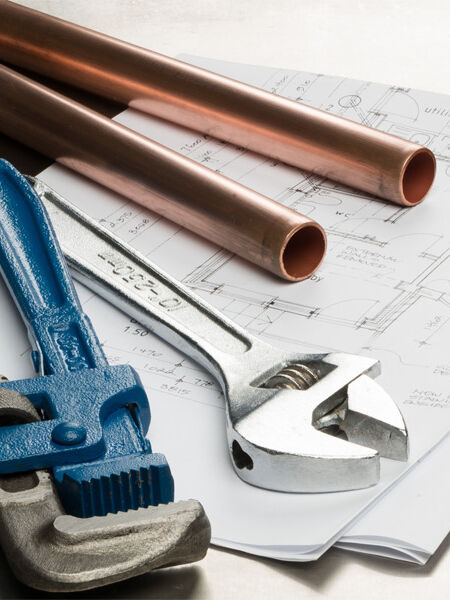
Water Heater Repair: Things to Consider
Table of Contents
- Before You Begin
- Should I Repair or Replace My Hot Water Heater?
- Should I Call a Plumber, or Can I DIY Fix My Water Heater?
- Benefits of Hiring a Plumber for Fixing Water Heaters
- Common Water Heater Problems
- Typical Water Heater Repairs and Maintenance Costs
- Gas Heater Repairs and Maintenance
- Benefits of Regular Water Heater Maintenance
Many household appliances require hot water – from your dishwasher and washing machine to your showers and baths. Your water heater is likely to be out of sight and probably out of mind, until it doesn't work and needs to be repaired.
We recommend calling a professional to perform hot water heater repairs, but you can also do some troubleshooting in case the issue doesn't require repairs and can be solved with a few adjustments to your water heater settings or by replacing a minor part.
Before You Begin
Sometimes, water heater repair requires something as simple as replacing dead batteries in a leak detection alarm. Your product manual is the first source of information to review if you’re experiencing problems with your water heater.
If you’re not comfortable troubleshooting common issues with water heater performance, call a professional who can safely diagnose and repair your water heater. If you are a DIY-type, consider the list of likely issues and the follow the recommended guidelines:
Check the Fuses/Breaker in Your Home
If the only symptom is no hot water, the solution may be as simple as changing a fuse or flipping the breaker. However, having no hot water often indicates a more serious problem.
Barring power surges, tripping the breaker, or blowing the fuse, this symptom may indicate a broken thermostat or a damaged heating element. If this is the case, please contact a professional who can safely replace these parts.
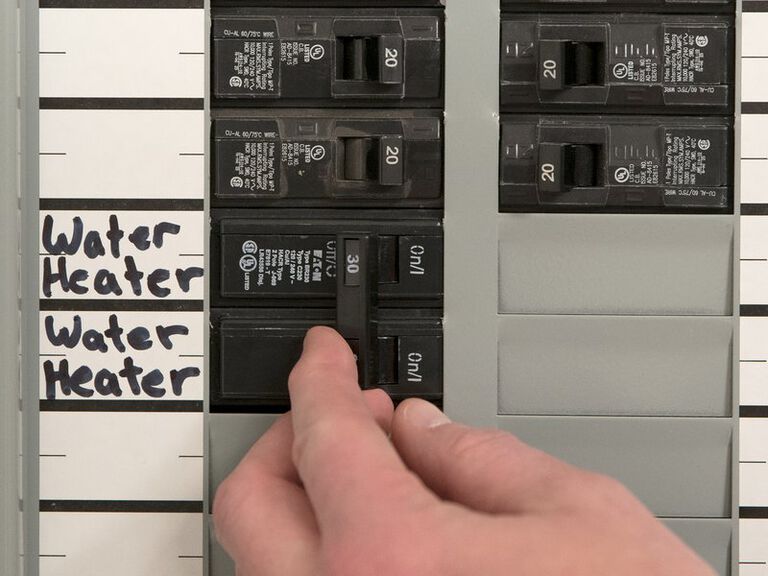
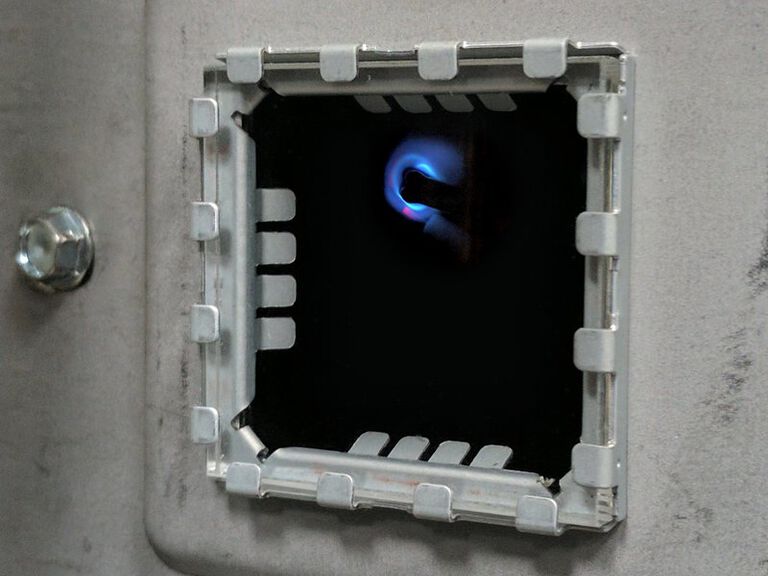
Check the Pilot Light
If your pilot light won’t stay lit, your water heater won’t be able to warm up the water in the unit’s tank. If you go to take a shower and find yourself stuck under an icy cold deluge, that could be a sign your water heater isn’t performing as it should be.
A visual inspection can solve a lot of mysteries pretty quickly. Take a look at your water heater. Can you see the pilot light? Is there a visible flame? If so, your pilot light is still lit.
For detailed instructions on relighting the pilot light, refer to your water heater's instruction manual.
Should I Repair or Replace My Hot Water Heater?
Repair Pros & Cons
The main advantages of repairing your water heater are that it typically costs less than replacing your entire unit, and you're likely to have a shorter time without hot water. The downside is that unless it's a minor issue, repairs will only add a short amount of time to your water heater's life span.
Replacement Pros & Cons
The benefits of replacing your water heater depend on its age and the necessary repairs. A. O. Smith provides industry-leading warranties on many of our products. You can check the status of your warranty
in case the needed parts or repairs or are covered.
Buying a new water heater can be a significant expense, but a water heater with newer technology can save you enough on energy bills to pay for itself withing four or five years. Federal, State, and local utilities usually provide incentives, and tax rebates on qualified high-efficiency water heaters.
Need help affording a new water heater?
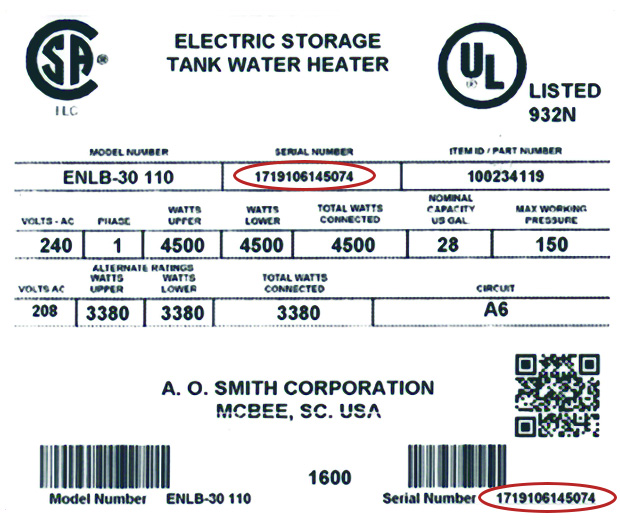
Use the serial number found on your water heater’s service label to check your warranty status
When Is Replacement Necessary?
When your water heater is 10 to 15 years old and keeps having issues, replacement may be necessary. To decide what's best, compare the hot water repair cost against the price of a new unit.
Should I Call a Plumber, or Can I DIY Fix My Water Heater?
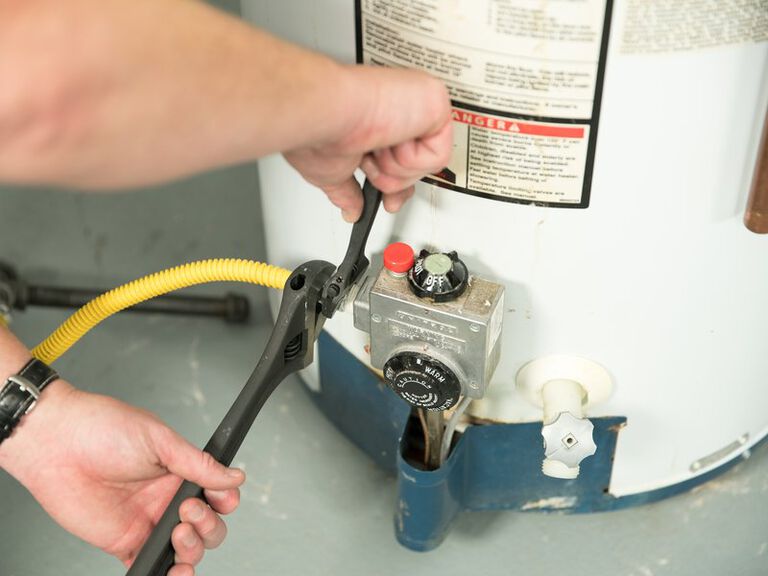
A DIY electric, gas or tankless water heater repair is possible, but it's usually less of a hassle to contact a plumber, especially if you're unsure of the issue. If you have limited plumbing experience, calling a pro is your best bet. Professionals typically have experience and tools specific to the task that you probably don't, so they can fix the issue faster and more effectively.
Tools Required
The most common tools you need for water heater repair include:
- Adjustable wrench
- Pipe wrench
- Pipe cutter
- Plumber's tape
- Screwdriver
- Drain pans and buckets
- Multimeter
- Joint compound
- Plumber's putty
Benefits of Hiring a Plumber for Fixing Water Heaters
The main benefits of hiring a plumber for residential and commercial water heater repair or emergency water heater repair include the following.
Right Tools & Parts
Plumbers carry the right tools with them for most jobs, and many also stow extra parts on their trucks for faster repairs.
Safety & Experience
Years of experience doing water heater repair make plumbers your best bet. These professionals also have the right gear to keep them safe while working with electricity.
Guaranteed Work
When you hire a professional, they typically guarantee their work for a set period of time for added confidence.
Saving Time
Unless you have training in plumbing, hiring a professional almost always saves you time on water heater repair. Generally during one of these repairs, the water heater will be down for about a day.
Develop Relationship
When you find a plumber who understands your needs and quotes a reasonable water heater repair cost, develop a relationship so you can call them again if things go wrong.

Common Water Heater Problems
Water heaters are complex appliances, but there are several basic causes you can look for before calling a professional. The most common problems with water heaters include the following:
Water Isn't Hot Enough
Several issues may cause your water heater to provide insufficient heat:
The first thing to look at is the temperature setting on the thermostat (electric water heater) or the electronic gas valve (gas water heater). If the temperature is set too low, the water won’t get hot enough for your preference. For detailed instructions on how to adjust the temperature, consult the original product manual that came with the water heater. If you are not comfortable performing this task, consult a professional.
Other issues that might occur include:
- One or both heating elements may be damaged
- Your thermostat needs to be replaced
- You may have a leak somewhere in your home’s water system
In any of these cases, consult a professional for the correct diagnosis and skilled repair services.
If the problem only occurs with a single shower or faucet, you might have a faulty thermostatic mixing valve. Replace the valve according to the manufacturer’s instructions or consult a professional to be safe.
No Hot Water at All
When you aren't getting any hot water from from all faucets, it's usually because of one of two reasons:
- Your home's electrical wiring systems and circuit breakers may have issues. Circuits could be overloaded in one area and cause problems elsewhere in the system.
- You have a burned-out upper heating element.
Water Temperature Is Too Hot
If your water temperature is too hot, you may have your thermostat set too high and you run the risk of scalding. It's probably best to find a service provider who can adjust the temperature or install thermostatic mixing valves to moderate the temperature coming out of the faucet.
Hot Water Runs Out Too Fast
Installing a unit that can't meet the hot water demand for your household is the most common cause of this problem. If you run out of hot water frequently, use our water heater selector tool to find a unit that will suit your needs. This tool considers flow rates based on your model, hot water use per occupant, how much hot water each uses at the same time, and your bath and shower sizes.
Rust-Colored Water or Bad Odor
The presence of a non-toxic sulfate reducing bacteria, Divibrio Sulfurcans, can cause rust-colored water and water that has a bad odor. This bacterium creates the energy it needs to survive by converting sulfate (SO4) to hydrogen sulfide (H2S) gas you smell in the water.
You can solve this problem by setting the water temperature to 140 F and installing thermostatic mixing valves at each point of use to prevent the risk of scalding.
Water Leaks
Loose fittings and connections are the most common causes of water leaks. A faulty pressure relief valve or a corroded or cracked tank may be the culprit.
Tank Making Noises
Popping noises in your hot water tank usually mean you have sediment in your water heater. Pressure in the system may cause a banging noise called a "water hammer," which requires professional repair. Whistling noises may indicate a blocked valve, and hissing usually means you have sediment inside the tank. Sediment buildup at the bottom of the tank also causes vibrating noises.
Low Water Pressure
Faulty pressure regulator valves, which are part of a water system rather than a water heater, are a frequent cause of low water pressure. When this issue is caused by your water heater, however, it's typically due to a blocked or damaged hot water shutoff valve.
Status Light Flashing (Gas)
When the status light on your gas water heater flashes, it usually indicates a lack of power to the unit or an empty tank. Other issues include problems with your thermostat or a pilot light that's gone out. Refer to the printed instruction manual for your water heater to determine the meaning of the flash codes.
Typical Water Heater Repairs and Maintenance Costs
Checking the Water Pressure
Checking the water pressure keeps the pressure from getting too high and damaging your water heater and other appliances. Fortunately, this task is easy to do and requires just a few minutes of your time and a pressure gauge, which typically costs between $10 and $20.
Corrosion Protection
If your water is corrosive, you may need to call a professional for water softener installation. This can cost anywhere from $200 to $6,000, depending on the size and quality of the system.
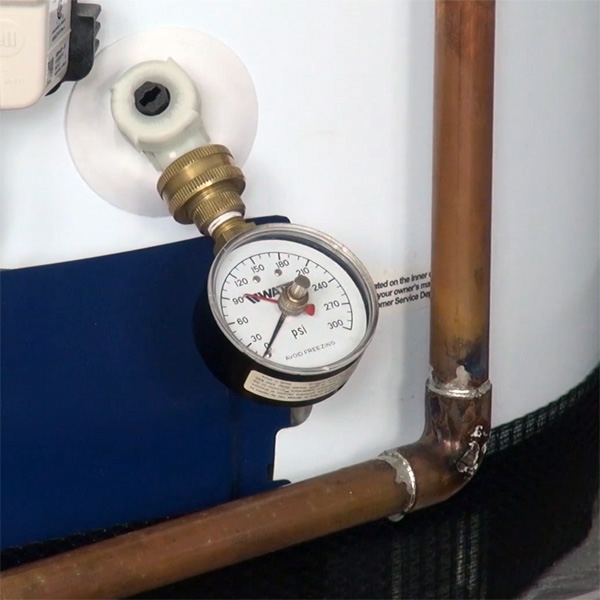
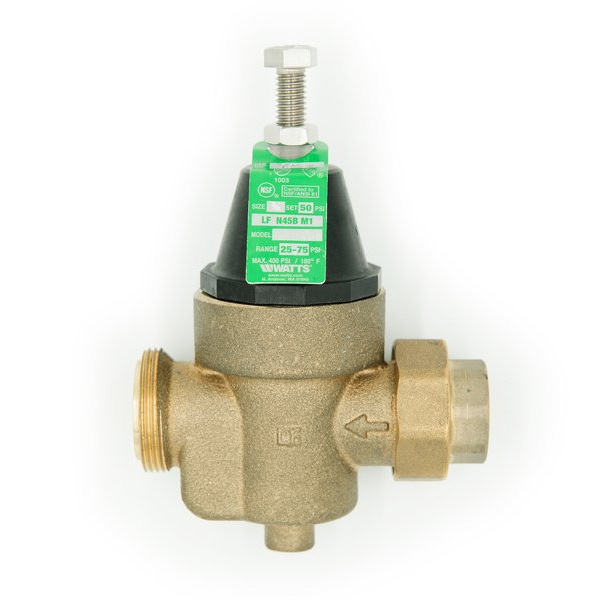
When you need water heater repair, use this list to decide if doing it yourself is worth the effort.
Replacing the Pressure Relieving Valve
The pressure relief valve ensures your water heater operates at safe pressure levels, and is vital to the functioning of your unit. The part itself costs around $15, and replacement is simple for DIY-ers with basic skills and should take around 15 minutes.
Installing a Thermal Expansion Tank
Thermal expansion tanks capture heated water as it expands in your water heater to reduce pressure and increase safety. Though this part wasn't essential in the past, many states have begun requiring their installation on closed-loop water heater systems. Due to the potential damage to pipes and your water heater, professional installation is recommended.
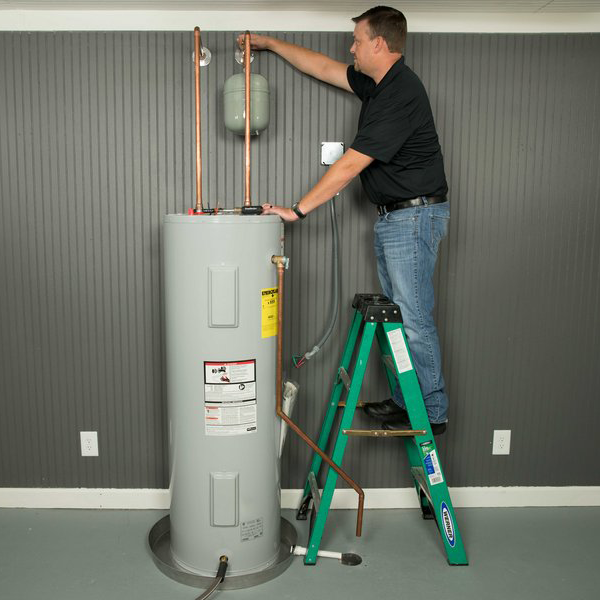
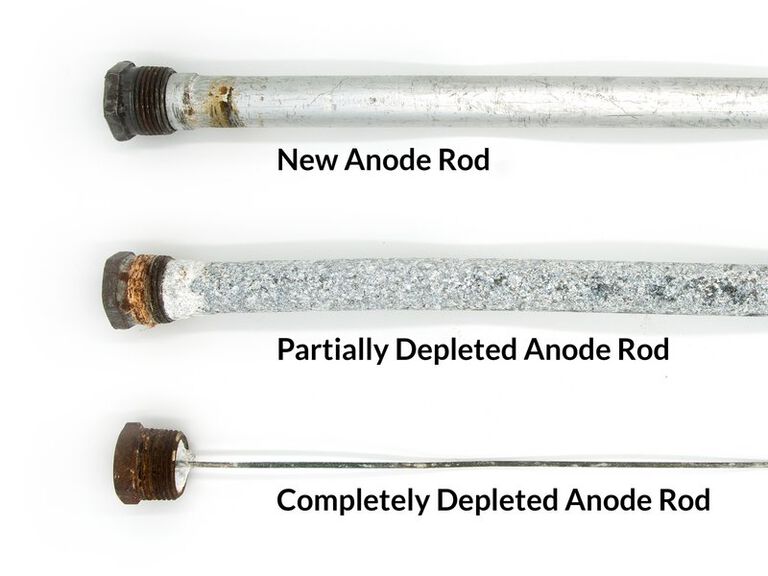
Replacing the Anode Rod
The anode rod attracts sediment in your water heater, absorbing corrosive elements to protect the lining of your tank. When this part wears out, replacement is vital to prevent your tank from damage. An anode rod typically costs around $50, and a novice can usually replace it in around 15 minutes.
Tank Cleaning & Flushing
Flushing and cleaning your water heater tank removes the sediment built up inside it, helping the unit operate faster and better. Fortunately, this is a relatively simple task for most homeowners to perform in roughly 2 hours.
Replacing the Heating Element
Heating elements are the essential parts that heat up the water in your unit. Replacing the parts takes roughly 3 hours for those with basic electrical and plumbing skills, but set aside more time for the task because the tank must cool before you begin. The cost of the parts runs between $10 and $60.
Replacing the Dip Tube
The dip tube's primary function is routing cold water to the bottom of your tank, where it's heated. When this part goes out, replacement parts typically cost only around $10.
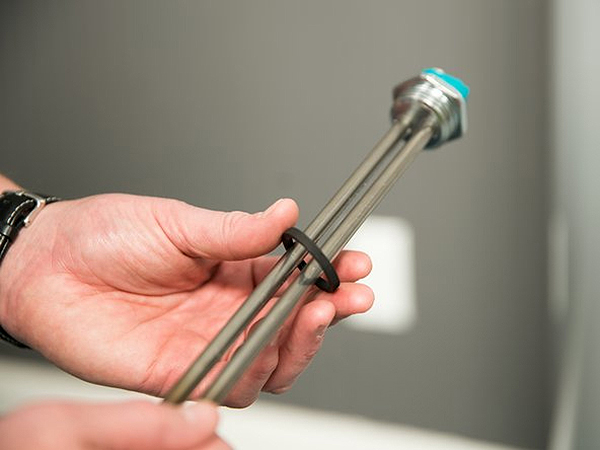
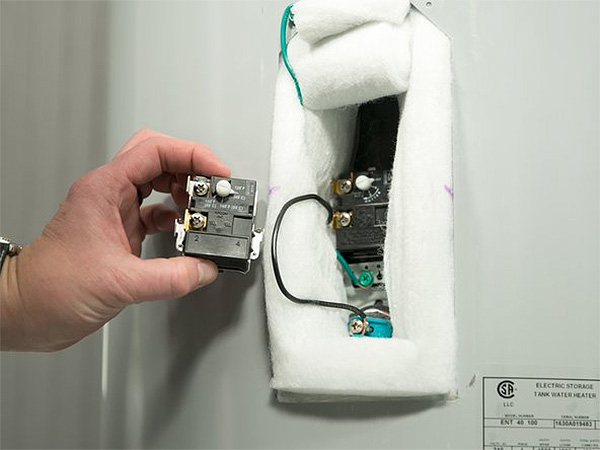
Replacing the Thermostat (Lower and Upper)
Your water heater's lower and upper thermostats control the temperature settings for the upper and lower heating elements, so ensuring both thermostats are working correctly and replacing these parts as necessary means more consistent, reliable heating.
Each one typically takes 15-20 minutes to install, depending on your skill level. Thermostats for electric water heater repair cost roughly $20, but some parts for gas water heater repair cost more due to their complexity.
Replacing the Timer
Water heater timers let homeowners time when they want the appliance to operate, and they're usually an energy-efficient addition to homes that run on a regular schedule or homes that are unoccupied for a few months out of the year. The good news is this optional part costs roughly $60, but the good news is that it's a relatively easy part for novices to install in just a couple of hours.
Replacing the Tankless Heat Exchanger
A tankless heat exchanger draws cold water in and pushes hot water out of your tankless water heater. Though the part costs $400 to $800, this tankless water heater repair is necessary because your unit doesn't work without it. In most cases, seeking professional help for this replacement is a good idea.
Replacing the Recirculating Pump
A recirculating pump ensures your water heater provides hot water on demand, so it's vital to operation. Unfortunately, costs for the part run anywhere from $400 to $3,200, and this water heater repair is complex, so professionals need to complete the job.
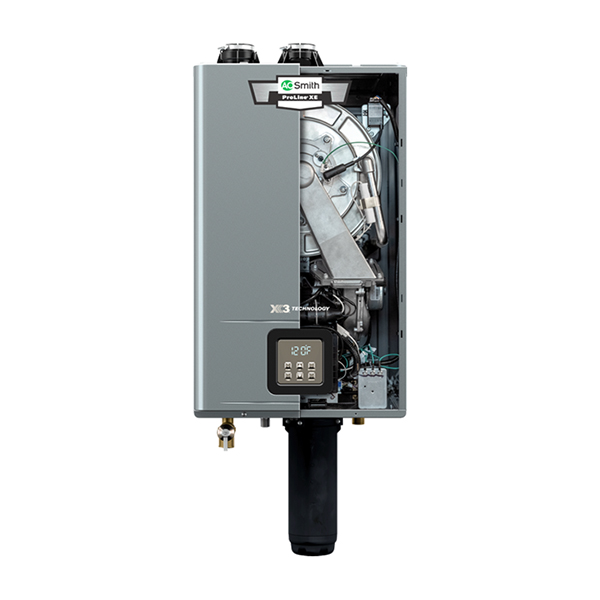
Gas Heater Repairs and Maintenance
When you need gas water heater repair, use this list to see whether you should call a service provider or do it yourself. Keep in mind that many of these repairs require a firm understanding of gas appliances, so call a professional if you have any doubt about your skill.
Replacing the Thermocouple/Thermopile
This component of gas water heaters lets you know when the pilot light goes out, and a faulty part means you can't relight your pilot light. Fixing this issue typically costs around $200 when you call a pro or $20 for the part if you do it yourself.
Replacing the Flue Pipe
Water heater flue pipes vent harmful gasses out of your water heater and home, making them essential for safe appliance operation. Though these parts cost between $10 and $30, depending on your unit, they typically require professional installation due to the difficulty level and the need for permits in some areas.
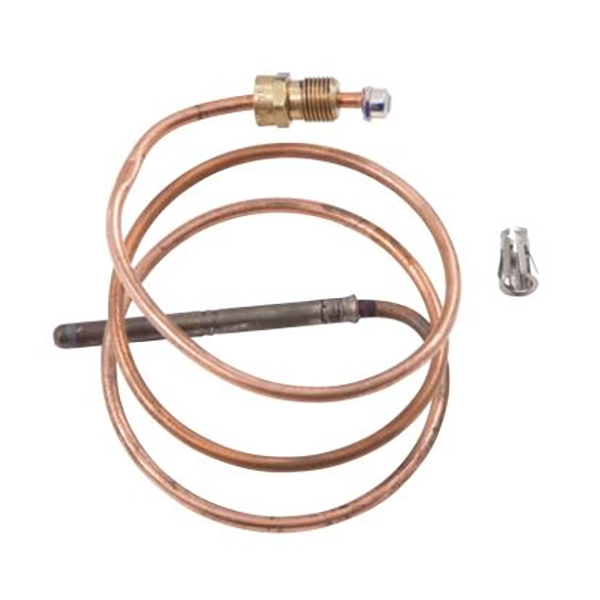
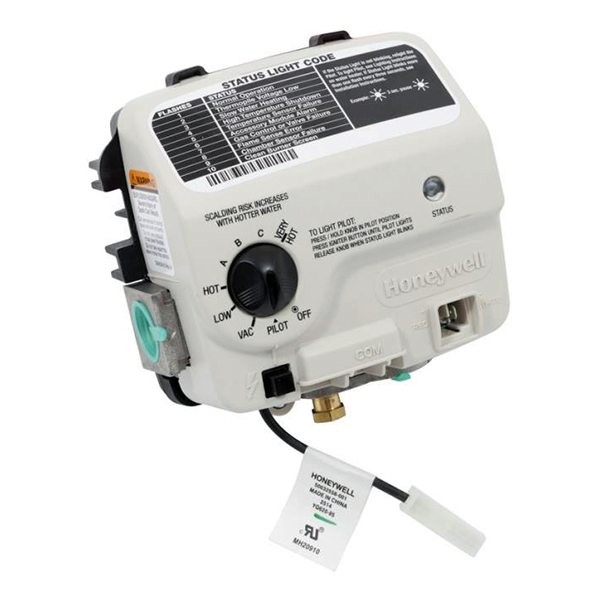
Replacing the Gas Control Valve
The gas control valve opens and closes to let in or keep out gas from the line that powers your water heater. A defective gas control valve is considered an emergency water heater repair, so call a professional immediately. Replacing this part usually costs between $300 and $500, and it's not a DIY job for most people.
Replacing the Igniter
Igniters on gas water heaters are push-button systems that light the gas entering the system to power your unit. If this part is defective, call a professional for replacement. Costs for this gas water heater repair run between $75 and $350.
Cleaning the Flame Arrestor
Flame arrestors prevent explosions by stopping flames from entering closed systems with combustible gasses. Though these parts last a while, they do need regular maintenance and cleaning. Fortunately, this task is a simple one you can perform by vacuuming the flame arrestor or cleaning it with a stiff wire brush to remove all debris.
Performing a Draft Test
Adequate air combustion is a must for a gas water heater, and performing a draft test ensures your space has ample air for safe operation. Though you can perform this test yourself, fixing the issue means calling a professional and costs between $100 and $500.
Benefits of Regular Water Heater Maintenance
Performing regular maintenance tasks on your water helps it to run more efficiently and extends the life of the unit.
Optimum Performance and Efficiency
Water heaters that are well maintained typically perform at peak efficiency to save you money on energy costs. This means ridding your unit of sediment buildup and preventing potential corrosion by flushing the tanks as needed as well as checking and cleaning the heating elements. While performing maintenance, visually inspect the overall unit to ensure there are no issues.
Increase the Life of Your Water Heater
Water heaters are an expensive investment, so maintaining your existing unit extends its lifespan. The way sediment and minerals accumulate in your system has the potential to damage key parts and reduce its efficiency. Routine maintenance enables smooth operation and saves money over the long term.
Peace of Mind & Protection
A proactive approach also protects your family should issues with a gas water heater create a potentially dangerous situation.